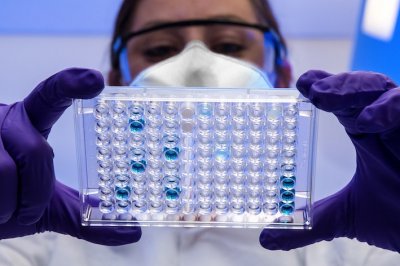Genetic Testing for Medication – The Secret to Better Psychiatric Treatment?

photo by Julia Zolotova for Unsplash
by Andrea M. Darcy
Worried about taking psychiatric meds after hearing horror stories of side effects, or symptoms just made worse? Genetic testing for medication is on the rise, and it might be the solution you have been waiting for.
What is genetic testing for medications?
The idea is that a DNA sample can mean you receive more effective, personalised medicine. You will hear it referred to as ‘pharmacogenetics’ or ‘pharmacogenomics’.
Pharmacogenetics uses your DNA to determine how you will react to a certain drug. In the case of psychiatric drugs, it will look at how you will metabolise a drug. So how fast or slow the uptake of the medication will be in your body. The goal is to figure out:
- what medication would be most effective for you
- the best dosage to start you at
- and, in some cases, to determine if you would have serious side effects.
Pharmacogenomics is a term often used interchangeably with pharmacogenetics. Scientifically, it refers to a broader approach, looking at how several genes interact, change, and mutate when faced with a drug.
In summary, genetic testing for medications is basically giving a DNA sample via a cheek swab or blood sample, so that your genes can be used to determine the best possible medication for you. The idea is to avoid the trial and error that treatment can sometimes involve.
Genomic testing and psychiatric medications – how helpful is it?

Photo by CDC on Unsplash
Psychiatric medications are not an exact science, as anyone who has tried medication for ADHD or depression will tell you. Some people do better with one drug, some with others. Even after you find the drug that works, it can take time to determine what dose best suits you.
Looking at ADHD medications, for example, some people swear by newer meds like Elvanse, while others prefer to stick to the trusty standard of Ritalin. And some people will take a very small dose several times a day, others one big dose, while still others prefer time release versions.
Pharmacogenomics and depression treatment
Drugs for depression are also known for their side effects, such as weight gain, loss of sex drive, and, unfortunately, a rise in suicidal ideation. Which can mean for some, antidepressants make things worse instead of better. So any additional information on how your body and a drug might work together is useful.
A study looking at over 1,500 subjects with major depressive disorder found that pharmacogenetic testing meant subjects were almost two times more likely to see their symptoms go into remission.
Will genetic testing guarantee a medication works well?
No. It is not magic. Our bodies are of course complex.
Again, what such testing can do is determine what medicine out of several is more likely to be effective for you, and which ones simply wouldn’t work at all. And, depending on the drug your DNA is being looked at for and how much research has been done on it, what side effects you are likely to get or not.
In cases where genetic testing can’t tell you about side effects, it does at least make it less likely you don’t take an unnecessarily high dose. So if you do end up with side effects, it would likely be at a less overwhelming level.
And note that pharmacogenetic information is not available for every medication. At current there just are over 40 medications that have been profiled, which obviously leaves out many others.
Controversy around pharmacogenomics

photo by Ivan Samkov for Pexels
First of all, there is the fact that private testing is currently very expensive, prohibitively so for many. Although in some cases it is offered under the NHS, not nearly enough, if the Royal College of Physicians has anything to say about it. They recently called for far more testing to be offered.
Are genetic testing around medicines racist?
Secondly, some researchers voice concern that it could lead to a form of medical racism.
A paper entitled, “Pharmacogenetics, Personalised Medicine, and Race’ shares that it could…
“… potentially usher in a new era of racial discrimination. These concerns have prompted scientists to think more broadly about how study design can be improved to find genetic variations related to drug response without dragging social issues of race into the equation.”
The paper points out that published studies grouping people via self-reported racial identity have already had their findings exposed as wildly inconsistent. And that in any case, evidence points toward genetic groupings being more efficient this manner of approaching studies based on skin colour or self-defined ethnic groups.
Plus, although our genetic makeup is key when creating personalised medications, it shouldn’t override taking into account other factors that affect how we respond to meds, like diet and lifestyle choices.
Should I try genetic testing for medications?
If you have the budget, it can mean that you find an effective medication more quickly. If you’ve had a bad experience with a psychiatric drug in the past, or suffer from anxiety around taking new meds, it can certainly help you have more confidence if receiving treatment.
Interested in genetic testing for psychiatric medications? We connect you with a highly trained and experienced psychiatrist offering pharmacogenetic testing in London on the prestigious Harley Street.
 Andrea M. Darcy is an established mental health writer and the lead writer of this site, who herself has had mixed results with ADHD medications after being diagnosed over two decades ago. She finds the promise of genetic testing fascinating. Find her on Instagram @am_darcy
Andrea M. Darcy is an established mental health writer and the lead writer of this site, who herself has had mixed results with ADHD medications after being diagnosed over two decades ago. She finds the promise of genetic testing fascinating. Find her on Instagram @am_darcy





Can l please be given a price and find out where l can get a generic test for depression medications?
I would like to know more on your genetic testing for some antidepressants I want to hopefully find ones that will work for me and not with so many side affects the best tolerated one and the prices please thankyou
Hi Shumila, Please email us at help@harleytherapy.co.uk and they will be able to assist.